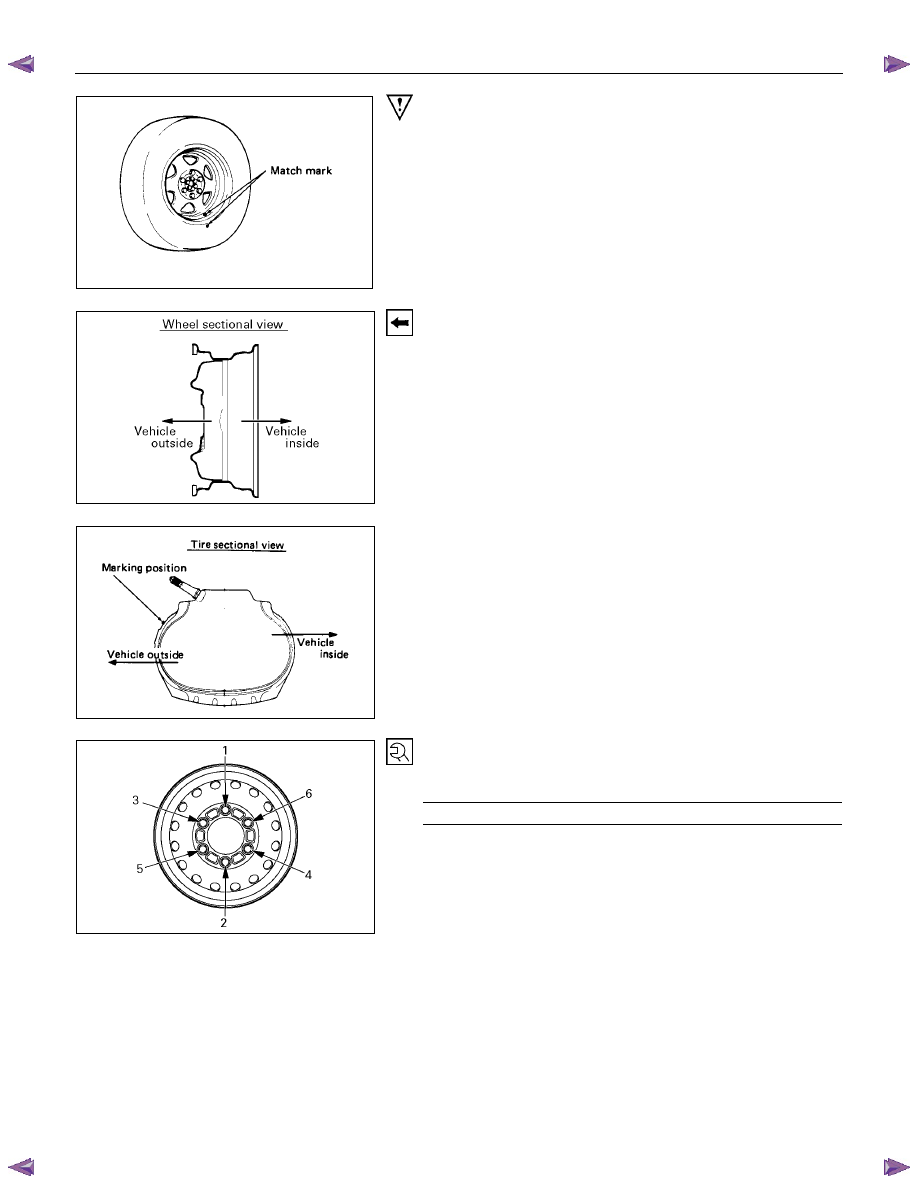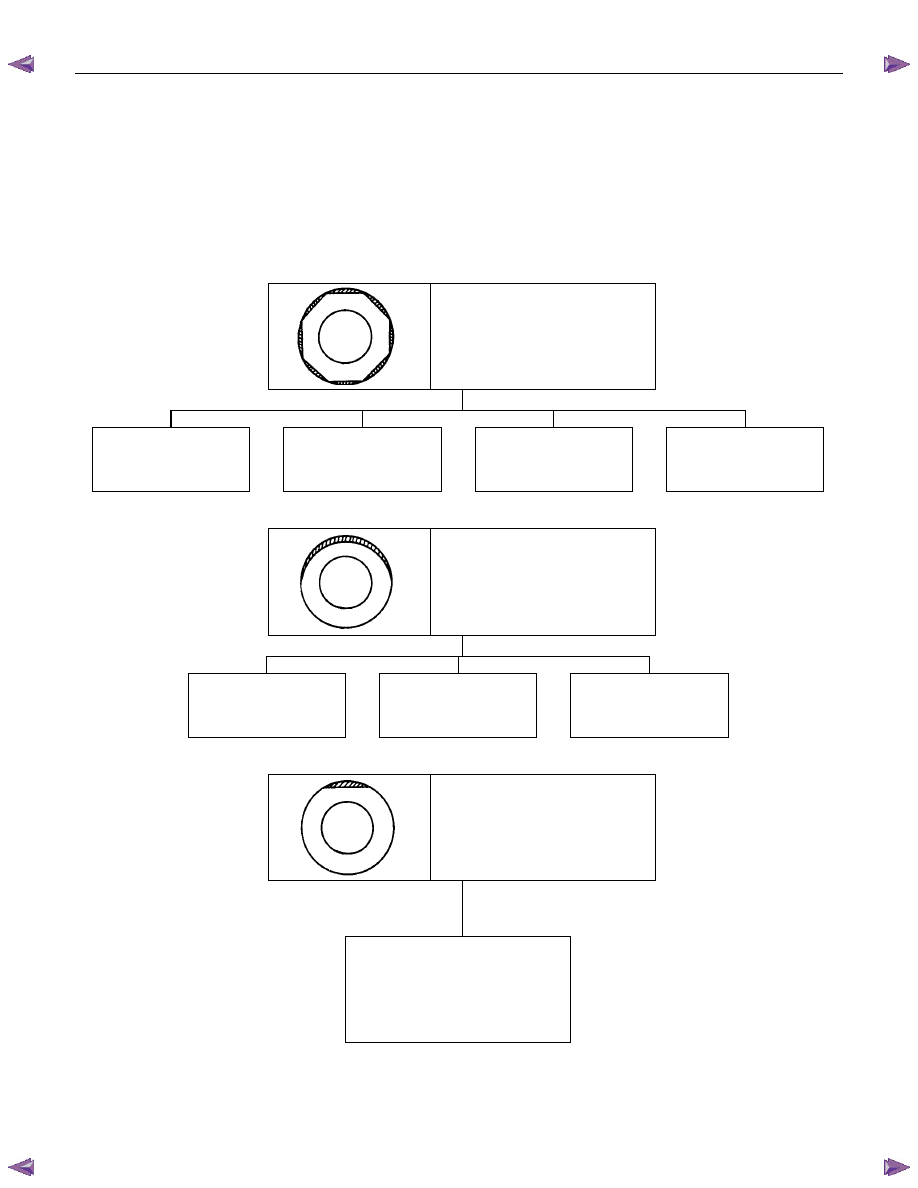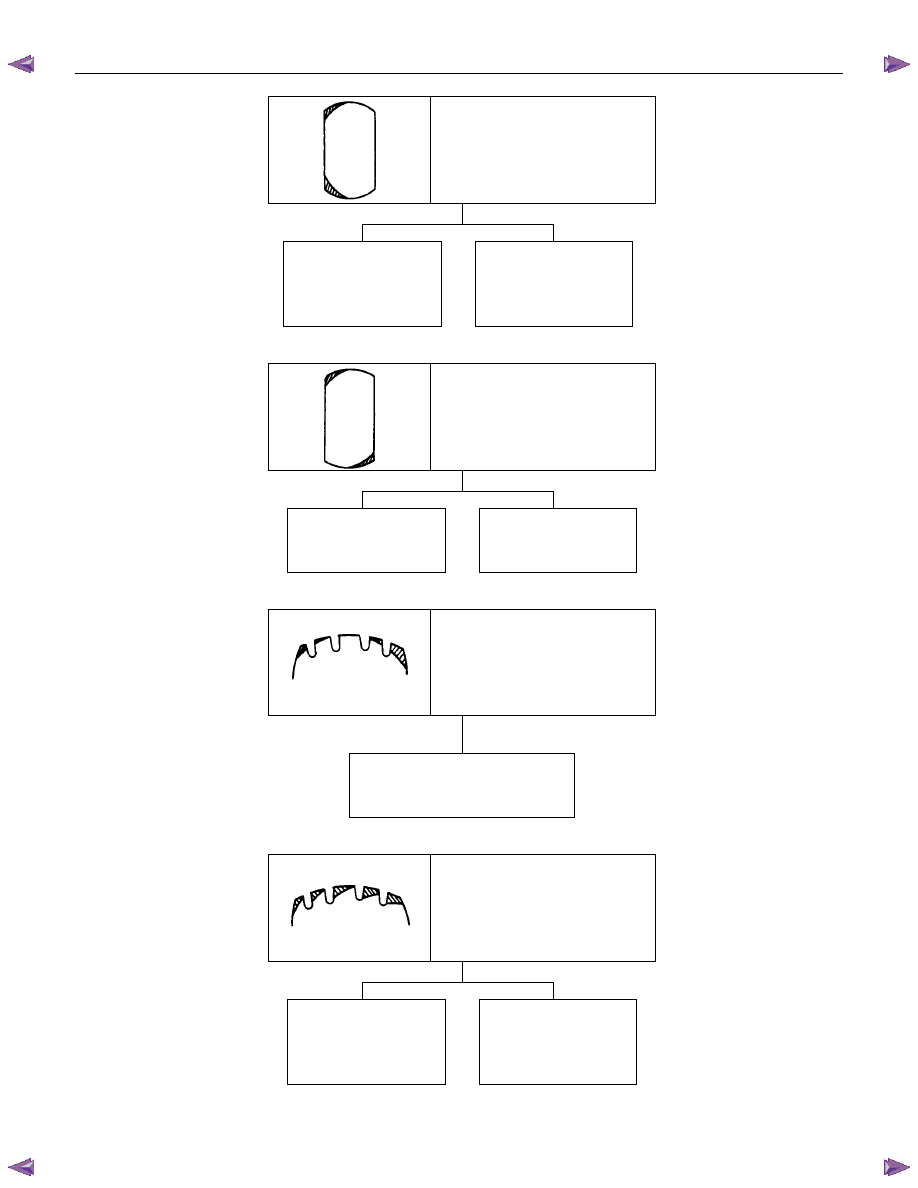Isuzu KB P190. Manual — part 103

3E-8 WHEELS AND TIRES
INSPECTION AND REPAIR
Make necessary correction or parts replacement if wear, damage or any other abnormal conditions are found
through inspection.
Visual Check
Inspect all disassembled parts for wear, damage or other
abnormal conditions.
Measure Wheel Runout
mm (in)
Wheel Type
Radial
Lateral
14 inch Steel
15 inch Steel
Less than 1.0
(0.04)
Less than 1.0
(0.04)
15 inch Alumi
16 inch Alumi
Less than 0.4
(0.016)
Less than 0.55
(0.022)
If the measured value exceeds the specified limit, the wheel
must be replaced.
Balancing Wheel and Tire
On-vehicle Balancing
On-Vehicle balancing methods very with equipment and tool
manufacturers. Be sure to follow each manufacturer’s
instructions during the balancing operation.
Off- vehicle Balancing
Most electronic off-vehicle balancers are more accurate than
the on-vehicle spin balancers. They are easy to use and give a
dynamic balance. Although they do not correct drum or disc
imbalance (as the on-vehicle spin balancing does), they are
very accurate.

WHEELS AND TIRES 3E-9
Important Operations
1. Tire Assembly
To assemble, align the match mark (approx. 10mm diameter
paint mark) on the wheel with the match mark (approx. 8mm
diameter red paint mark) on the tire. If the match mark on the
wheel has disappeared, align with air valve instead.
2. Wheel and Tire Assembly
3. Wheel Nut
Tighten wheel nuts in numerical order.
Wheel Nut Torque
N
⋅m (kgf⋅m/lb⋅ft)
117.7
± 9.8 (12 ± 1.0 / 86.8 ± 7.2)

3E-10 WHEELS AND TIRES
TROUBLESHOOTING
Typical examples of abnormal tire tread wear and major causes :
CAUTION:
Similar wear patterns can be caused by worn suspension parts, misalignment of wheels and tires, and
other suspension related problems.
Spotty wear - wear localized
on shoulder section. In
extreme cases, the tire
becomes polygonal in shape.
Tire or wheel out of
round or distorted.
Hub or knuckle out
of round or distorted.
Play in hub bearings
or ball joints.
Rotating parts out of
balance.
Tread wear one-sided.
Rotating parts out of
balance.
Tire or wheel out of
round.
Hub or knuckle out
of round or distorted.
Localized tread wear.
Once spotty wear develops in
tread due to hard braking or
abrupt starting, localized wear
tends to be accelerated.

WHEELS AND TIRES 3E-11
Shoulder wear (generally
wear develops on outer
shoulder).
Camber or toe-in
incorrect.
Shoulder wear
caused by repeated
hard-cornering.
Wear on shoulders at points
opposed to each other.
Tire or wheel out of
round or distorted.
Play in bearings or
ball joint.
Premature wear on
shoulders.
Flexing of tire excessive due
to under-inflation.
One-sided feather edging.
Wear caused by
repeated hard-
cornering.
Camber or toe-in
incorrect.

Нет комментариевНе стесняйтесь поделиться с нами вашим ценным мнением.
Текст